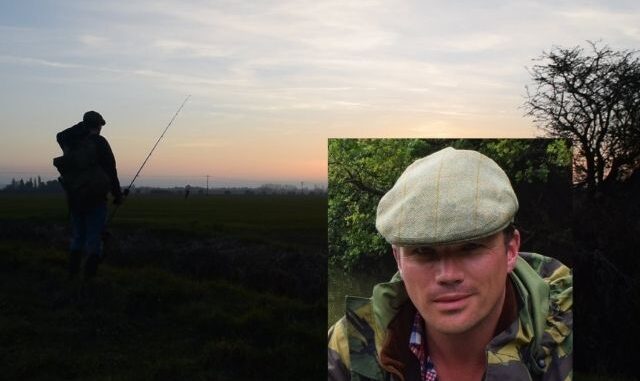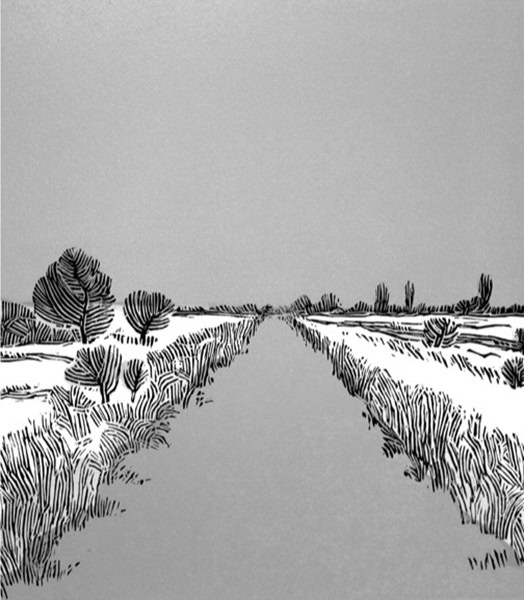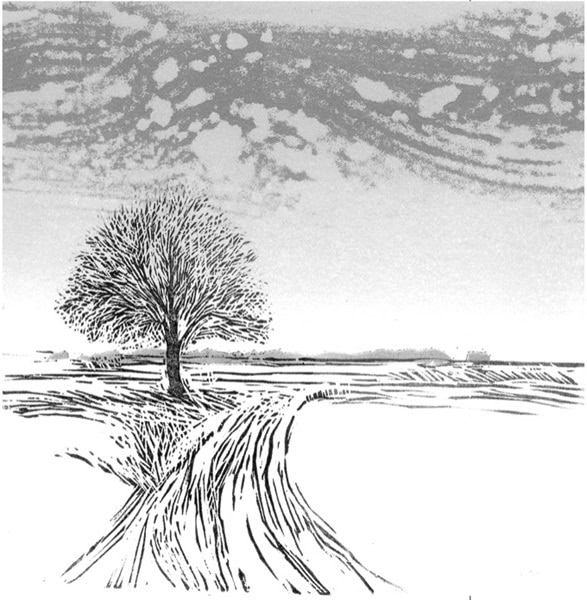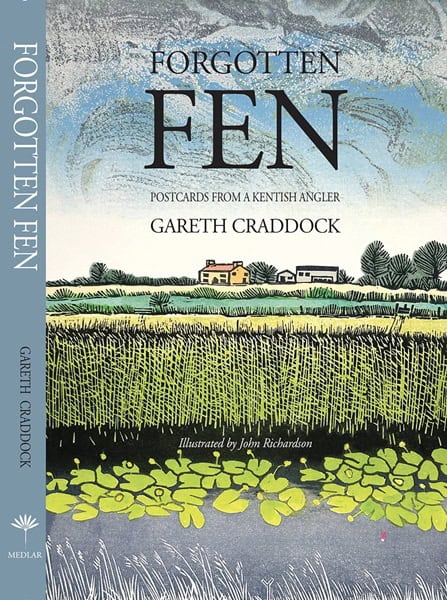
A fascinating journey through local history, countryside and fenlands by Ramsgate writer Gareth Craddock is due to be published this Autumn.
Forgotten Fen is an exploration of lives and land, beginning at Betteshanger colliery with Gareth’s grandfather and family who came to Ramsgate in the 1930s from Wales and settled at Newington estate.
Gareth follows the old fen system and wanders the ancient drovers’ paths. He discovers abandoned marshland fed by a lost stream, marsh harriers, owls, beavers and even a ghost.
The 46-year-old English teacher at Great Oaks Small School weaves tales from his chief passions of fishing, birding, local social history, personal details and ghost-hunting.

He said: “It’s all about Ramsgate’s backyard, or its hinterlands.
“I moved from Nethercourt to Pegwell when I was seven or eight years old and with my cousins, brothers and friends, would sit at the back of the Bellevue beer garden looking at the marshlands where our grandads used to mine and thinking about where we would go in the summer holidays, making maps. We’d get out there newting with jam jars or birdwatching and we had something to do with the land, we were connected to it.”
Gareth says the countryside book, which features beautiful illustrations from John Richardson, looks at threads from people who lived on the marshes in the 1920s, to the era of his grandfather who would grow marsh flowers and herbs at his home in Newington, to Gareth’s own explorations following the death of his best friend.

Describing it as a kind of ‘eco-therapy,’ or American ‘blue-lining’ where you pick a blue line on a map and travel it, Gareth said: “Just outside of Pegwell it is like a spaghetti junction of blue lines. I found one in particular, there’s one river called the North Stream which flows down from Ham to Betteshanger.
“I started at Betteshanger and I made my way up it over a period of two or three years and I got to know its flowers, its birds and its fish and its ghosts.”
Gareth says he recounts how he saw the ghost of Mary Bax, a milkmaid who was murdered in 1782 while walking from Deal to Sandwich. The culprit, a Norwegian sailor AWOL from his ship, was later executed for his crime.
A memorial stone to Mary can be found on the dune path in the area of the Royal St George’s Golf Club.

He added: “The story of the ghost coincides with a story of a tame Barn Owl, a female, when I saw the ghost the owl has something to do with it.
“I was taking family members out to see the owl, it was so tame it would come up 10 or 20 yards away and stop and stare which is quite unusual as they are an extremely furtive, secretive species.”
Describing the marsh as both a dark place but also an amazing beauty spot, Gareth says there is an eeriness to the book but he hopes his writing will help to protect the site and its wealth of rare flowers and wildlife.
Pointing to the possible development of Minster Marshes by National Grid, Gareth says he hopes that is not a fate for the Pegwell, Hacklinge and Worth marshes but if it is, then the book is a written record of its unique topography, rare plants and birds and social history.
He added: “One of the reasons for writing it is the rarity of the topography and many people are not aware of that, the rarity of the flowers -rare orchids- and bird life that is better than it has been for 100 years with the return of marsh and hen harriers, and the fish – tench that grow to over 10lbs without being force fed a diet of anglers’ bait because there is no-one out there.
“The second reason is the folklore of the land, my grandfather worked out there and my friends’ grandparents and now it is empty. It’s very romantic, an empty, vacuous, nebulous land. You drive in and out of that area without knowing what’s there.
“I would think anyone conscientious reading the book would want to protect that area and nurture it.”

The book took around a year to compile but the stories and facts it is based on come from diaries kept by Gareth over a three year period.
Forgotten Fen will be published by Medlar Press, which specialises in fishing and rural topics, and is due for release in late September.
Copies can be reserved at: https://www.medlarpress.com/bookstore/?store-page=Forgotten-Fen-p648830566

